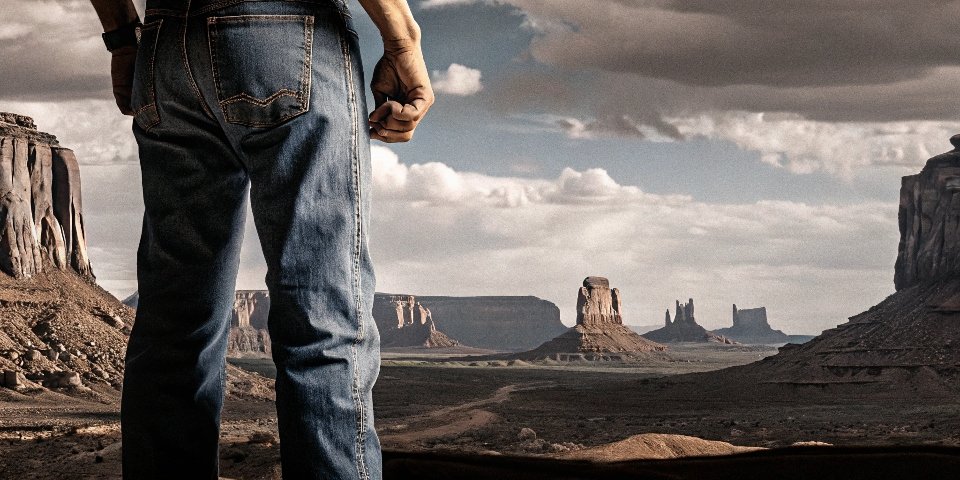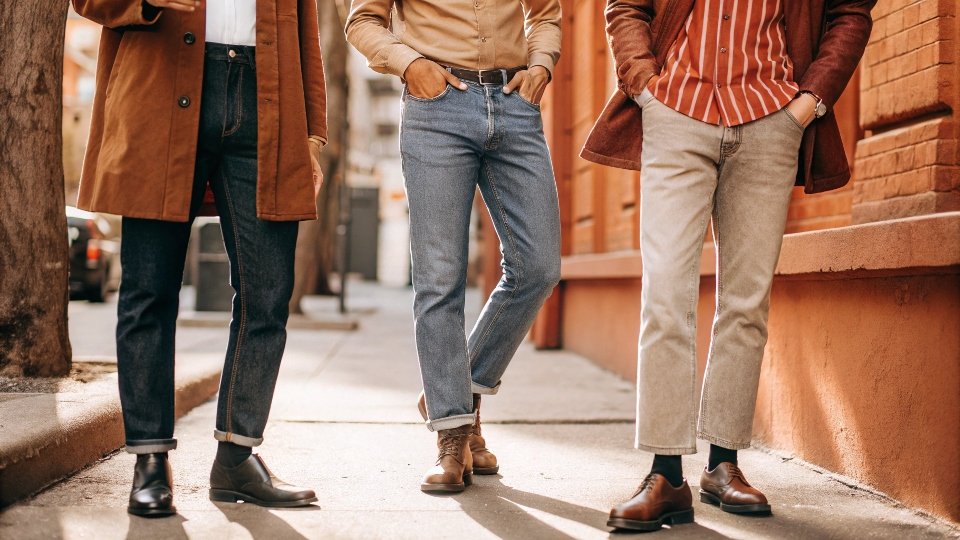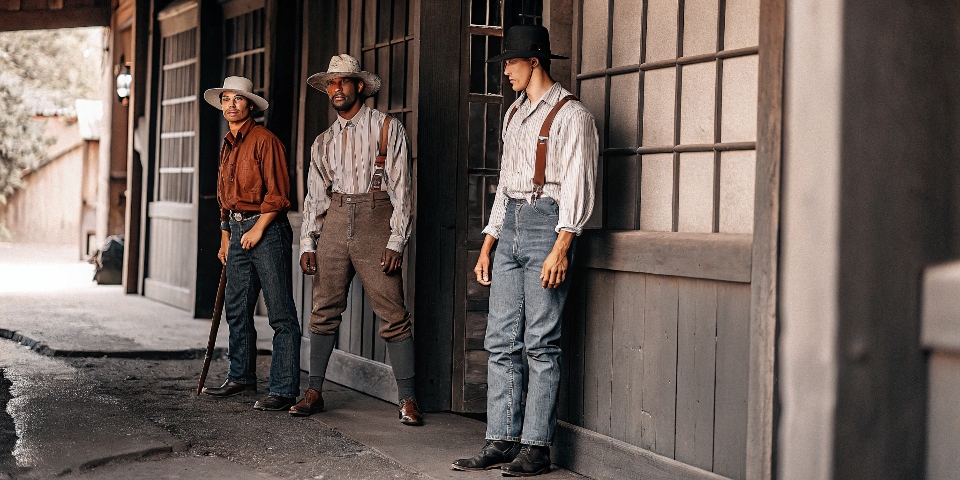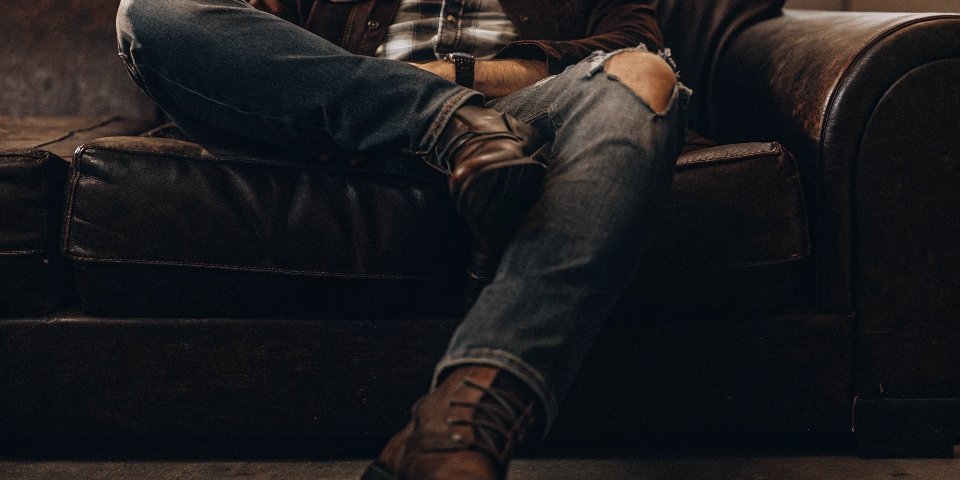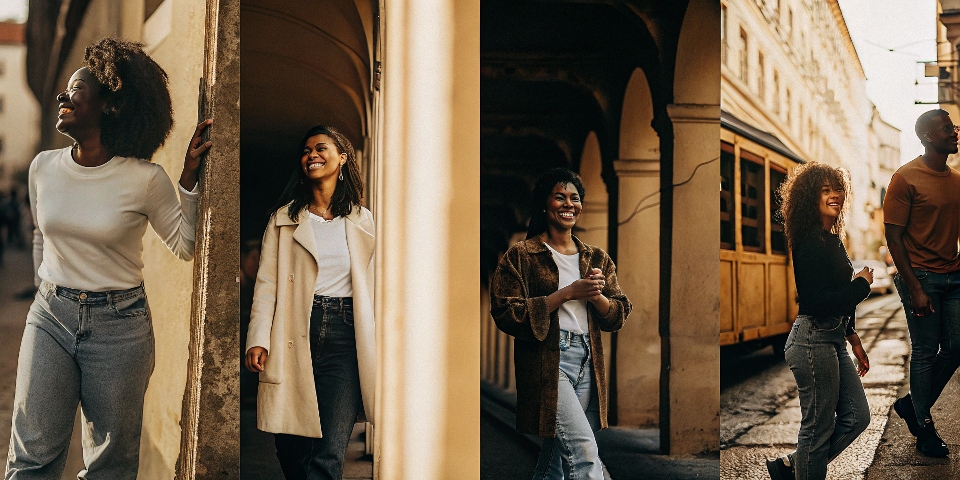An American man's closet is almost guaranteed to have a stack of blue jeans. It might seem like a simple, even unimaginative choice, but this preference is deeply ingrained and for good reason.
American men love blue jeans because they are the perfect blend of comfort, durability, and versatility. More than just pants, they are a cultural symbol of rugged independence, practicality, and a casual confidence that is central to the American identity.
In my two decades making jeans at DiZNEW, I've shipped millions of pairs to the US market. I've realized I'm not just manufacturing clothing; I'm producing a piece of the American uniform.
They are comfortable, tough, and incredibly versatile. You can wear them for a month between washes if you're careful, and you never have to iron them.
This blend of practicality and powerful symbolism is what makes them an enduring favorite. So, let's explore why this one garment holds such a special place in the American wardrobe.
Why do Americans wear jeans all the time?
You see jeans everywhere, from casual Fridays at the office to a weekend barbecue. It can make it seem like there's a lack of variety, a uniform of casualness.
Americans wear jeans constantly because they are the ultimate multi-purpose garment. A single pair can be dressed up or down, making them suitable for an incredibly wide range of social and work situations, maximizing practicality.
The sheer versatility of blue jeans is their superpower. They are the wardrobe's ultimate workhorse. From a manufacturing perspective, a classic dark-wash, straight-leg jean1 is the perfect blank canvas.
It's the starting point from which countless outfits can be built. This adaptability aligns perfectly with the American value of efficiency and practicality. Why have five different pairs of pants when one pair of high-quality jeans2 can do the job of all five? It simplifies life.
A designer like Dean I work with prizes this quality above all else; he can build an entire seasonal collection for a client around a single core jean fit.
It's not about being lazy; it's about being smart. Here is how one pair of jeans can cover almost any situation you might face.
| Occasion | The Jeans | The Combination | The Result |
|---|---|---|---|
| Weekend Errands | Dark Straight-Leg | Paired with a T-shirt and sneakers. | Casual & Comfortable |
| Date Night | Dark Straight-Leg | Paired with a button-down shirt and boots. | Smart & Confident |
| Creative Office | Dark Straight-Leg | Paired with a blazer and loafers. | Polished & Modern |
Why are blue jeans so associated with American culture?
They're just a pair of pants, made from cotton. Yet, when you think of blue jeans, you almost certainly think of America. What gives this fabric its national identity?
Blue jeans are tied to American culture because their history mirrors the nation's own story. They represent the rugged spirit of the cowboy, the hard work of the laborer, and the rebellious soul of the 1950s counter-culture.
The story of blue jeans is the story of America. When Levi Strauss and Jacob Davis patented their riveted work pants in 1873, they weren't trying to make a fashion statement.
They were solving a problem for the gold miners and laborers building the American West. The pants needed to be tough, and the rivets kept the pockets from ripping. This history gives them an authentic connection to work and perseverance.
The Cowboy Symbol
In the 1930s and 40s, Hollywood westerns transformed the jean from simple workwear into a symbol of the American cowboy. Actors like John Wayne wore them as a uniform of freedom, independence, and rugged heroism. They became linked to the myth of the American frontier.
The Rebel Uniform
Then, in the 1950s, a new generation gave jeans another meaning. When Marlon Brando and James Dean wore them on screen, they became a symbol of youth rebellion3 and anti-establishment coolness. They were so powerful as a symbol that some schools actually banned them.
The Democratic Garment
From there, they became the great equalizer. Worn by factory workers, rock stars, and even presidents, jeans erased the visual lines of social class. They became a kind of democratic uniform, accessible to all, and that feels very American.
Why do guys like wearing jeans?
Beyond the big cultural ideas, what is the simple, personal reason a man chooses jeans over other pants when he gets dressed in the morning?
Guys like wearing jeans for very simple reasons: they feel good, they are practically indestructible, and they make getting dressed easy. They offer an effortless sense of confidence and masculinity without any fuss.
I think it comes down to three core feelings: comfort4, confidence, and simplicity. First is comfort, but it's a specific kind of comfort.Brand new, rigid jeans can be stiff, but as you wear them, they soften and mold to your body.
They become uniquely yours. This personal break-in process creates a deep sense of attachment. And they are low-maintenance; you don't iron them, and you can go weeks between washes. Second is a feeling of confidence. Jeans have a rugged, masculine history.
The tough twill fabric feels substantial and grounded. It's a piece of clothing that feels protective and capable, which can subtly boost a man's confidence5. Finally, they offer simplicity.
For a guy who doesn't want to think too hard about what to wear, jeans are the answer. They go with almost any shirt, any pair of shoes. This reliability removes decision fatigue and provides a dependable "uniform" that always works.
Why do so many people like wearing blue jeans?
This love for jeans isn't just an American thing. It's a global phenomenon. How did this one piece of clothing manage to conquer wardrobes all over the world?
So many people love blue jeans because they are a personal canvas. Over time, they fade, fray, and wear according to your life, telling a story that is uniquely yours. This ability to become personalized makes them universally appealing.
While their roots are American, their appeal became universal because they represent ideas that everyone can connect with: freedom6, youth, and individuality.
During the Cold War, a pair of Levi's was a powerful symbol of Western culture and freedom for young people living behind the Iron Curtain. But the deepest reason for their global success is their ability to become personal.
When we ship a new pair of jeans from my factory, they are a blank slate. But after a year of wear, no two pairs are the same. The fade marks on the thighs, the "honeycombs" behind the knees—these are all created by the owner's body and habits.
The jean becomes a wearable diary, a chronicle of your life written in indigo. This capacity for personalization makes them more than just a piece of clothing; it makes them a part of you. This is a powerful, human connection that transcends language and culture.
| Group | What Jeans Represent |
|---|---|
| Office Workers | A relaxed, modern approach to business casual. |
| Musicians | A uniform of authenticity and rebellious cool. |
| Global Youth | A symbol of freedom and connection to Western culture. |
| Fashion Lovers | A versatile canvas for personal style and new trends. |
Conclusion
American men love jeans for their unmatched comfort and versatility. More importantly, jeans are a cultural icon, representing the timeless American spirit of hardworking, rugged individualism and casual confidence.
-
Explore this link to discover why dark-wash, straight-leg jeans are a timeless and versatile choice for any wardrobe. ↩
-
Check out this resource to understand the long-term benefits and value of investing in high-quality jeans. ↩
-
Discover how jeans transformed into a powerful symbol of youth rebellion in the 1950s, influencing culture and fashion. ↩
-
Exploring this link will deepen your understanding of how comfort in clothing can enhance your overall well-being. ↩
-
This resource will reveal insights into how what you wear can significantly influence your self-esteem and confidence. ↩
-
Exploring this link will deepen your understanding of how freedom influences fashion choices globally. ↩

